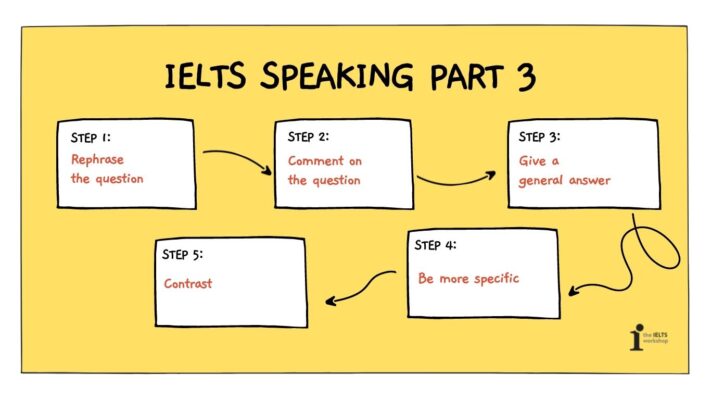Sports luôn là chủ đề lưu ý trong bài thi IELTS Speaking, trong chuyên mục giải đề dưới đây, cô Lê Phương Anh của The IELTS Workshop HN sẽ hướng dẫn bạn trả lời topic “Describe a sport you enjoyed watching“ trong IELTS Speaking Part 2. Cùng tham khảo sample, từ vựng và một vài cách diễn đạt ghi điểm trong phần thi IELTS Speaking nhé.
Part 2: Describe a sport you enjoyed watching
Describe a sport you enjoyed watching
You should say:
What sports programs do you like to watch
When you watch it
Who do you watch with
And explain why you like watching it.
Dưới đây là bài mẫu cho topic “Describe a sport you enjoyed watching“.
1. Bài mẫu (Sample)

2. Từ vựng (Vocabuary)
- Physically demanding: đòi hỏi cao về thể chất
- Straight-up (slang): thực sự
- Be prone to: có khuynh hướng
- Squeamish (adj): dễ khó chịu
- Be obsessed with: ám ảnh với điều gì đó đến mức không thể ngừng nghĩ về nó
- Thrill and excitement: hồi hộp và phấn khích
- Feel at ease: không lo ngại
- Segment: phần
- Showcase: thể hiện
- Breaking a sweat: đổ mồ hôi khi làm việc gì cần nhiều sức lực
- Dynamic (adj): năng động
Part 3
1. Which sport do you think most people like to do?
2. Do children need exercise?
3. What are the benefits of exercise?
4. What can be done to get children into sport?
5. What sports programs do people like to watch in your country?
6. What is the difference between watching sports on TV and watching it live?
1. Which sport do you think most people like to do?
As far as I’m concerned, the majority of the population, or at least the people among whom I live enjoy football, and I’m curious to know why. You see, my neighborhood is not actually well-known for being sports-oriented, but it already has a total of 3 football fields which are constantly occupied by players from all over the city. People love watching, talking, and playing football perhaps even more than playing with their own offspring. Speaking of children, not only do adults like football, but I see that the kids do too. If I had a dime for every time a child jumped in front of my vehicle to catch a ball from his friend’s miskick, I’d be a millionaire.
2. Do children need exercise?
Absolutely! We’ve learned about this since kindergarten garden that exercising is significantly beneficial for our health, especially our children’s. Nowadays, the young are way too occupied with their study or addicted to their electronic devices that they might forget the importance of physical activities, which could lead to a sedentary lifestyle. That might be the reason why I’ve heard so many youngsters complain about back pain, which you’d normally hear about from old folks. Parents and schools need to encourage their younglings to exercise more or else the well-being of the next generation might deteriorate.
3. What are the benefits of exercise?
Oh boy, where do I start? From what I’ve read so far, exercise can develop and improve both your physical and mental health. When you work out, you burn calories, and your metabolism increases, which results in weight loss. Also, studies have shown that while doing physical activities, your brain releases endorphins, the hormones that induce pleasure and reduce stress, so if you find yourself feeling down, try to walk a couple of blocks around your neighborhood, you’ll feel a lot better. Finally, exercising is a great way to avoid chronic medical conditions like obesity, diabetes, heart disease, and many types of cancer.
4. What can be done to get children into sport?
We can start by confiscating their smartphones and tablets, and then we inform them about the benefits of sport, how fun it is, and the rewards they get afterward. Children love competing, so I reckon that the thought of winning and defeating others alone can pique their interest. Schools could incorporate sports into their curriculum and students in different classes can form teams can compete against each other. They should also host sports tournaments and invite other schools to participate. I remember attending the Olympic Games held by my sister’s primary school and I saw the look of excitement on the kids’ faces when they played soccer and their bright smiles as they heard the audience cheering were priceless.
5. What sports programs do people like to watch in your country?
We have a list. Let’s see, the World Cup, Sea Games, Asian Games, AFC Asian Cup, UEFA Champions League, so basically, everything related to football. Every time there’s a match in one of these sports events, I see people flock to the nearest bar or their neighbor’s house to watch it. You can hear their cheers and groans after a goal is scored from miles away. I figure that the reason why Vietnamese love football so much is not because it is deemed the King of sports. They enjoy the sport due to the fact that the national football team is exceptionally good at it and has brought home a whole slew of trophies. The sense of national pride and patriotism brings us together and even if our team loses, we still appreciate the effort and dedication these young men bring to the field.
6. What is the difference between watching sports on TV and watching it live?
The money you have to pay for tickets to be at the main events is of course the biggest difference. I’ve never been to one of these so I’m not 100% sure, but from what my colleagues told me, the price ranges from 2 days to a week’s worth of pay for an average worker. That’s a lot of money as opposed to watching TV at home, which costs you virtually nothing. Besides, you get to be in the comfort of your own house eating popcorn instead of busting your eardrums by listening to the cheers of thousands of people in a stadium. Having said that, if you can afford to be in the front row and see the players in person, I guess the experience will be worth the money.
7. Vocab Highlight
- sports-oriented (adj): định hướng thể thao
- sedentary (adj): ngồi nhiều, ít vận động
- younglings (n): người trẻ
- deteriorate (v): xấu đi
- metabolism (n): sự trao đổi chất
- obesity (n): bệnh béo phì
- diabetes (n): bệnh tiểu đường
- confiscate (v): tịch thu
- pique their interest: thu hút sự chú ý
- deem (v): coi như
- patriotism (n): tinh thần yêu nước
- bust your eardrums: nổ lỗ tai
Bài mẫu bởi cô Lê Phương Anh – Giáo viên The IELTS Workshop HN
Các bạn có thể tham khảo các bài mẫu IELTS Speaking của The IELTS Workshop cũng như tham gia bài test trình độ tiếng Anh và nhận tư vấn lộ trình miễn phí tại đây!
Để có thể học và nắm được phương pháp xây dựng câu trả lời cho phần thi IELTS Speaking Part 3, tham khảo ngay Khóa bổ trợ từng kỹ năng IELTS chuyên sâu của The IELTS Workshop.









